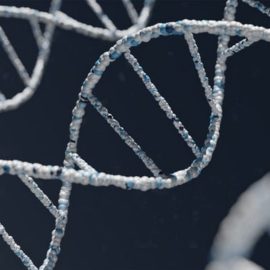

This article is an excerpt from the Shortform book guide to "Attached" by Amir Levine and Rachel Heller. Shortform has the world's best summaries and analyses of books you should be reading.
Like this article? Sign up for a free trial here .
Why do we get attached to someone romantically? What roles do evolution and biology play in attachment?
Human attachment is an inescapable fact of biology. In prehistoric times, pairs of humans had a better chance of survival than any solo human, so genetic selection favored people who “attached.”
Keep reading to learn more about why we get attached to other people.
Why We Get Attached
Why do we get attached to someone? Many of the problems we face in our romantic relationships stem from our attachment systems, a mechanism in our brains that compels us to seek intimacy and closeness with a chosen partner—both physically and emotionally. Even though every human is wired with this urge for closeness, we respond to its pull in different ways. Some people feel the attachment urge and automatically want to resist it or suppress it. Others automatically embrace it. If two partners’ attachment responses fall on opposing ends of the spectrum, clashes are inevitable. But by understanding how attachment drives us, we can achieve less conflict and more harmony in our relationships.
Psychologists believe this brain wiring is an evolutionary adaptation. In prehistoric times, pairs of humans had a better chance of survival than any solo human, so genetic selection favored people who “attached”—or learned how to develop close bonds with others.
The fact that human attachment is an inescapable fact of biology gives rise to our different methods of dealing with it. Although we all possess the innate desire to connect in a meaningful, nurturing way with a chosen partner, our beliefs and behaviors about intimacy fall into one of three diverse categories or “attachment styles”—secure, avoidant, or anxious.
How Attachment Styles Affect Our Relationships
Whether your attachment style is secure, anxious, or avoidant determines how you function in intimate relationships. Here’s a brief summary of each style:
- If you’re a secure attacher, you’re a nurturing, responsive, warm, and loving partner who is comfortable with intimacy.
- If you’re an anxious attacher, you’re preoccupied with making your relationship solid, and you constantly seek reassurance from your partner.
- If you’re an avoidant attacher, you’re more distant and self-reliant, and you see intimacy as a threat to your independence. You tend to keep your partner at arm’s length.
Attachment differences manifest themselves in a wide range of partnership scenarios from budget planning to raising children to daily chores to sex. In fact, knowing someone’s attachment style is an excellent predictor of how they will behave in any partnership situation.

———End of Preview———
Like what you just read? Read the rest of the world's best book summary and analysis of Amir Levine and Rachel Heller's "Attached" at Shortform .
Here's what you'll find in our full Attached summary :
- Why your partner behaves the way they do
- How your attachment style affects your relationship
- How to distance yourself from unhealthy relationships






